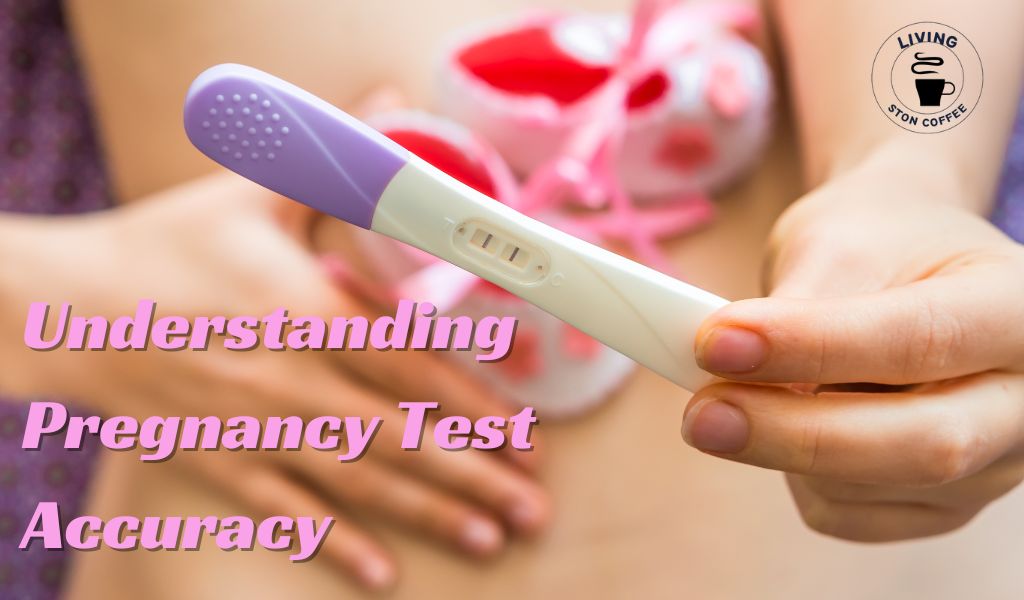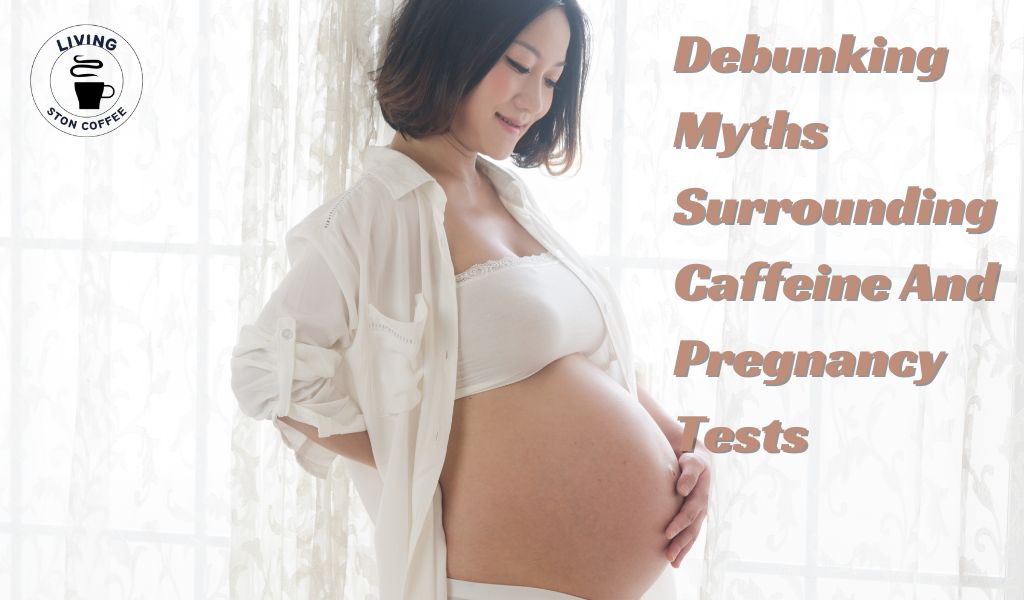Drinking coffee does not directly affect the outcome of a pregnancy test. Caffeine doesn’t impact HCG levels, but excessive liquid intake, including coffee, can dilute urine and affect the test’s accuracy.
Pregnancy testing accuracy can be influenced by various factors, such as incorrect test usage, testing too early, using an expired test, or consuming excess fluids before the test. It’s crucial to stay informed about the potential interferences to ensure accurate results.
While caffeine intake does not directly impact pregnancy test results, understanding the factors that can affect the accuracy of the test is essential for anyone seeking reliable results. This knowledge can help individuals make informed choices and ensure the accuracy of their pregnancy test outcomes.
Understanding Pregnancy Test Accuracy

Consuming coffee won’t directly affect a pregnancy test, but excessive caffeine intake may lead to dehydration and cause you to drink more fluids, possibly diluting urine. This can make it difficult for a test to detect pregnancy hormones accurately.
understanding Pregnancy Test Accuracy`
The accuracy of a pregnancy test is crucial in identifying whether or not an individual is pregnant. Factors such as timing, HCG levels, and external influences can impact the reliability of the results. Understanding the various elements that affect pregnancy test accuracy can help individuals take necessary precautions before and during the testing process. `
`factors Affecting Pregnancy Test Results`
Several factors can influence the results of a pregnancy test. These include: – Timing: The timing of the test can greatly affect its accuracy. Testing too early may result in a false negative, as the HCG levels may be too low to detect. – User Error: Improper usage of the test or failure to follow the instructions can lead to inaccurate results. – Medications: Certain medications, such as those containing HCG, can interfere with the test, potentially leading to false positives. – Expired Tests: Using an expired pregnancy test can compromise its accuracy. `
`impact Of Caffeine Consumption On Test Accuracy`
While caffeine does not directly impact HCG levels, excessive consumption of caffeinated beverages can potentially dilute the urine, affecting the test results. Dehydration caused by caffeine intake may prompt individuals to drink more liquids, thereby diluting the urine and potentially hindering the detection of HCG. It is important to consider the impact of caffeine consumption when undergoing a pregnancy test to ensure optimal accuracy.
Caffeine And Hormone Levels

Caffeine consumption does not directly affect hormone levels crucial for a pregnancy test. However, excessive caffeine intake may lead to dehydration, necessitating increased liquid consumption. This heightened fluid intake could potentially dilute urine, impacting the accuracy of a home pregnancy test.
As a result, moderation in caffeine consumption is advisable when considering a pregnancy test.
The Effect Of Caffeine On HCG Levels
It’s a common belief that caffeine can affect the results of a pregnancy test. However, from a biological standpoint, caffeine does not directly impact the levels of HCG (human chorionic gonadotropin) in the body. HCG is the hormone detected by pregnancy tests as it is produced by the placenta after implantation.
Investigating The Relationship Between Caffeine And Pregnancy Test Results
While caffeine may not affect the hormone levels crucial for pregnancy tests, it’s essential to consider its potential impact on hydration. Caffeine is known for its diuretic properties, which can lead to increased urination and potential dehydration. If a woman drinks large amounts of caffeinated beverages, it could dilute her urine, making it more challenging for the pregnancy test to detect HCG accurately.
Debunking Myths Surrounding Caffeine And Pregnancy Tests

There is a plethora of myths and misconceptions surrounding the effect of caffeine on pregnancy tests. Many believe that consuming coffee can affect the accuracy of the test results. In this blog post, we will debunk these myths and provide evidence-based analysis to shed light on the influence of caffeine on pregnancy tests.
Addressing Common Misconceptions
One common misconception is that caffeine can interfere with the detection of HCG (human chorionic gonadotropin) in urine, leading to false negative results. However, there is no scientific evidence to support the claim that caffeine directly affects pregnancy test accuracy. Another myth is that drinking coffee can dilute urine, affecting the concentration of HCG. We will investigate these claims and provide a clear understanding of the relationship between caffeine consumption and pregnancy test accuracy.
Evidence-based Analysis Of Caffeine’s Influence On Pregnancy Tests
Several scientific studies have examined the impact of caffeine on pregnancy test results. It has been established that caffeine consumption does not alter HCG levels or interfere with the detection of pregnancy-related hormones in urine. While excessive consumption of fluids, including caffeinated beverages, can potentially dilute urine and affect test accuracy, moderate coffee intake is unlikely to cause significant dilution.
Recommendations For Accurate Testing
When it comes to taking a pregnancy test, it’s essential to ensure accurate results. Certain factors like consuming coffee can potentially affect the outcome. To minimize the risk of inaccurate readings, following specific guidelines for preparing and optimizing testing conditions is crucial.
Guidelines For Preparing For A Pregnancy Test
Prior to conducting a pregnancy test, it’s important to adhere to the following guidelines for accurate results:
- Avoid excessive consumption of liquids, including coffee, before taking the test, as dilution of urine may impact the accuracy of the results.
- Check the expiration date of the test kit to ensure its reliability.
- Read the instructions provided with the test kit thoroughly and follow them precisely for optimal results.
- Consider taking the test in the morning when the urine is more concentrated, potentially leading to more accurate readings.
Optimizing Testing Conditions For Reliable Results
To optimize the conditions for accurate pregnancy testing, the following tips can be helpful:
- Choose a clean and dry workspace to prevent any external contaminants from affecting the test results.
- Ensure that the test is conducted in a well-lit area to clearly read the results as per the instructions provided.
- Avoid distractions and disturbances during the testing process to maintain focus and accuracy.
Frequently Asked Questions On Can Coffee Affect A Pregnancy Test?
What Can Interfere With A Pregnancy Test?
Drinking too much water, using expired tests, and certain medications can interfere with pregnancy tests. Also, testing too early or improper usage may lead to false negative results.
What Can Throw Off A Pregnancy Test?
Some factors that can cause a false negative pregnancy test include improper use, testing too early, using an expired test, or diluting urine by drinking too much water. Certain medications and medical conditions can also interfere with the test result.
What Should I Avoid Before A Pregnancy Test?
Avoid alcohol, smoking, and drugs. Don’t drink excess water before the test. Some medications and expired tests can interfere.
Can Drinking Certain Things Affect A Pregnancy Test?
Yes, certain things like too much liquid can dilute urine and affect a pregnancy test.
Conclusion
While caffeine itself does not affect the HCG levels, excessive consumption can lead to dehydration and dilution of urine, potentially impacting the accuracy of a pregnancy test. It’s important to be mindful of your fluid intake before taking a pregnancy test to ensure reliable results.
Always follow the test instructions carefully for the most accurate outcome.

